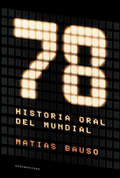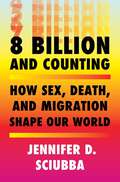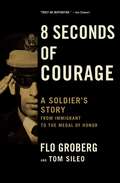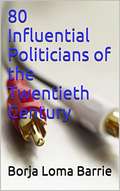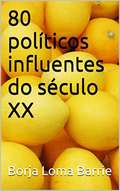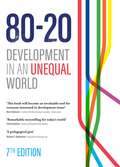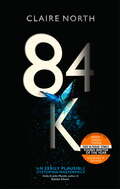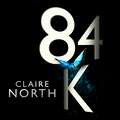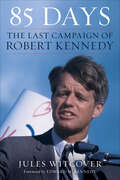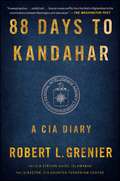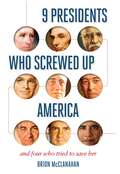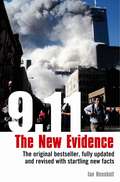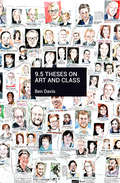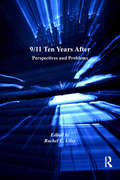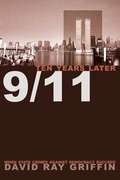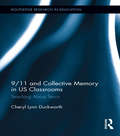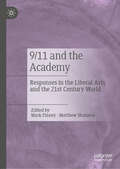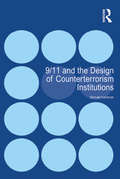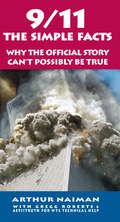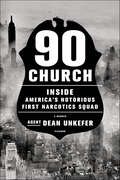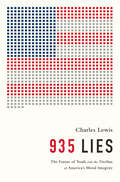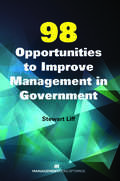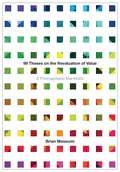- Table View
- List View
78. Historia oral del Mundial
by Matías BausoLa historia más completa que se haya hecho de esta copa mundial de fútbol: un relato monumental, exhaustivo y fascinante en el que se combina el recuerdo de la aventura deportiva con la revisión de uno de los momentos más oscuros de la historia política de Argentina. 78. Historia oral del Mundial es la reconstrucción más completa que se haya hecho de esta copa de fútbol. A través de los testimonios de sus protagonistas y un monumental trabajo de archivo, toma forma un relato en el que se conjugan el recuerdo de la aventura deportiva con la revisión de uno de los momentos más oscuros de la historia de la Argentina. ¿Es cierto que estaba prohibido criticar a Menotti y al equipo? ¿Era el juego de la Selección tan menottista como se lo recuerda? ¿Por qué Kempes fue el único repatriado? ¿Qué sucedió con Carrascosa? ¿Por qué los holandeses no fueron a la cena de premiación? ¿Estuvo arreglado el partido con Perú? ¿Qué significado tuvieron los festejos callejeros? ¿Funcionaron como un aval temporario de la Dictadura o, por el contrario, fueron una vía de escape al clima de opresión reinante? ¿Consiguieron los militares utilizar el Mundial como cortina de humo para tapar sus crímenes atroces? ¿Por qué no había argentinos en los grupos de boicot europeos? ¿Celebraron los exiliados? ¿Qué postura adoptó Montoneros? ¿Cómo trató la población a las Madres de Plaza de Mayo durante los veinticinco días que duró la Copa? Es imposible contar el Mundial 78 sin contar la Dictadura, pero a la vez su significación y magnitud no pueden reducirse a las oscuras circunstancias políticas que le dieron marco. Gran parte de lo que se cree saber sobre aquel campeonato es erróneo. A lo largo de cuarenta años se ha impuesto todo tipo de mitos, deformaciones y falseamientos. 78. Una historia oral del Mundial propone un nuevo recorrido adentrándose en los matices y en las contradicciones del relato de Argentina 78, sin los reduccionismos y las lecturas banales que buscan tranquilizar la memoria y la conciencia. A partir de testimonios exclusivos, más de 150 entrevistas y una labor de archivo monumental, Matías Bauso hace un trabajo de reconstrucción inédito para dar forma a una narración exhaustiva del largo camino que condujo hacia aquellas controvertidas semanas de junio de 1978, y de su proyección al día de hoy, al cumplirse exactamente cuatro décadas.
8 Billion and Counting: How Sex, Death, and Migration Shape Our World
by Jennifer D. SciubbaA provocative description of the power of population change to create the conditions for societal transformation. As the world nears 8 billion people, the countries that have led the global order since World War II are becoming the most aged societies in human history. At the same time, the world’s poorest and least powerful countries are suffocating under an imbalance of population and resources. In 8 Billion and Counting, political demographer Jennifer D. Sciubba argues that the story of the twenty-first century is less a story about exponential population growth, as the previous century was, than it is a story about differential growth—marked by a stark divide between the world’s richest and poorest countries. Drawing from decades of research, policy experience, and teaching, Sciubba employs stories and statistics to explain how demographic trends, like age structure and ethnic composition, are crucial signposts for future violence and peace, repression and democracy, poverty and prosperity. Although we have a diverse global population, demographic trends often follow predictable patterns that can help professionals across the corporate, nonprofit, government, and military sectors understand the global strategic environment. Through the lenses of national security, global health, and economics, Sciubba demonstrates the pitfalls of taking population numbers at face value and extrapolating from there. Instead, she argues, we must look at the forces in a society that amplify demographic trends and the forces that dilute them, particularly political institutions, or the rules of the game. She shows that the most important skills in demographic analysis are naming and being aware of your preferences, rethinking assumptions, and asking the right questions. Provocative and engrossing, 8 Billion and Counting is required reading for business leaders, policy makers, and anyone eager to anticipate political, economic, and social risks and opportunities. A deeper understanding of fertility, mortality, and migration promises to point toward the investments we need to make today to shape the future we want tomorrow.
8 Seconds of Courage: A Soldier's Story from Immigrant to the Medal of Honor
by Tom Sileo Flo GrobergIn an inspiring story of valor and the making of a hero, Florent Groberg—who grew up in France and emigrated to the US—becomes the first immigrant in forty years to receive the Congressional Medal of Honor after he tackled a suicide bomber in Afghanistan.Florent &“Flo&” Groberg was born in the suburbs of Paris and moved to the US with his family in middle school. He became a naturalized citizen in 2001. After attending the University of Maryland, he joined the US Army and twice deployed to Afghanistan. In August of 2012, Flo was guarding a high-level US-Afghan delegation and noticed someone suspicious: a local man stumbling toward his patrol. Flo reacted quickly and ran to tackle the man—who was wearing a suicide vest. Four people died in the subsequent explosion, but many others were spared. Flo himself spent the next three years undergoing surgeries at Walter Reed Medical Center, and in 2015 he was given the nation&’s highest military award, the Congressional Medal of Honor—the first immigrant to be so recognized since the Vietnam War. What prepares a soldier for those critical moments in combat? 8 Seconds of Courage tells Flo&’s story from his childhood in France to his decision to enlist and the grueling training he underwent at US Army Ranger School. As a field commander on the front lines in Afghanistan he formed close and lasting bonds with his fellow soldiers. It was this powerful sense of responsibility that compelled him to take action to save lives, even at the risk of his own. &“Flo&’s incredible tale of bravery and service is also a stark reminder that for many of our warriors, coming home is not the end of the fight. Flo finds a way to live…Truly an inspiration&” (Jon Stewart). In his own words, Flo provides that essential insight into his selfless act while remembering his four fallen brothers in arms. 8 Seconds of Courage is a story of heroism, sacrifice, and camaraderie in wartime.
80 Influential Politicians of the Twentieth Century
by Borja Loma Barrie Jorge Alberto Campos GarcíaLives of Men and Women Fundamental in the Last Century. Biographies of Hitler, Lenin, Stalin, Churchill, Fidel Castro, Mussolini, Nasser, Nixon, Ché Guevara, Francisco Pi y Margall, José Antonio Primo de Rivera, Condolezza Rice, Serrano Súñer, etc.,etc.
80 políticos influentes do século XX
by Borja Loma Barrie Tatiana HedekeVidas dos Homens e Mulheres Fundamentais no último século Biografías de Hitler, Lênin, Stalin, Churchill, Fidel Castro, Mussolini, Nasser, Nixon, Ché Guevara, Francisco Pi y Margall, José Antonio Primo de Rivera, Condoleezza Rice, Serrano Súñer, etc., etc.
80: Development in an Unequal World
by Ciara Regan Colm Regan Tony DalyA development education resource designed and written by an international group of authors and educationalists. It explores inequalities and injustices in an accessible and understandable fashion, with infographics, figures, graphs, photographs and cartoons. Now in its seventh edition, it is extensively used in universities, schools, adult and youth groups and NGOs.Tony Daly is co-ordinator of Irish development education and human rights organisation 80:20 Educating and Acting for a Better World and project manager for an NGO consortium website www.developmenteducation.ie. Previously, he led a pilot project advancing a human rights approach to community development with the British Institute for Human Rights, London and has been directly engaged in human rights education, development education, curriculum reform and research projects in Ireland, Northern Ireland, the United Kingdom and Australia for over 15 years. He holds degrees from University College Dublin and University College London.Ciara Regan is education consultant to 80:20 Educating and Acting for a Better World. Since 2010 she has worked directly on the developmenteducation.ie website and has researched and published in the area of women and development in the context of HIV and AIDS in Zambia. She has worked on community art projects in Lusaka, Zambia and across Dublin on a wide range of issues such as public accountability, women’s rights, diversity and interculturalism. She holds degrees from NUI Galway and Birkbeck, University of London.Colm Regan initiated and, for many years edited 80:20 Development in an Unequal World – the reader is now widely used internationally, particularly in Africa. He is former co-ordinator of 80:20 in Ireland and has been professionally active for over 40 years in education for human rights, justice and human development – subjects he has written extensively on. In this context, he has worked in development education in Ireland, the UK, Australia, Ethiopia, Rwanda, Brazil and Zambia. He holds post graduate degrees from Simon Fraser University, Vancouver and McGill University, Montreal and now lives, writes and teaches in Gozo, Malta.
84K: 'An eerily plausible dystopian masterpiece' Emily St John Mandel
by Claire North'AN EERILY PLAUSIBLE DYSTOPIAN MASTERPIECE' Emily St. John Mandel, author of STATION ELEVEN'AN EXTRAORDINARY NOVEL . . . with echoes of The Handmaid's Tale' Cory Doctorow***SHORTLISTED FOR THE PHILIP K. DICK AWARD***From one of the most original new voices in modern fiction comes a startling vision of a world where you can get away with anything . . .Theo Miller knows the value of human life - to the very last penny. Working in the Criminal Audit Office, he assesses each crime that crosses his desk and makes sure the correct debt to society is paid in full. But when his ex-lover is killed, it's different. This is one death he can't let become merely an entry on a balance sheet. Because when the richest in the world are getting away with murder, sometimes the numbers just don't add up.From the award-winning Claire North comes an electrifying and provocative new novel which will resonate with readers around the world. Praise for 84K:'Another captivating novel from one of the most intriguing and genre-bending novelists' Booklist'Claire North goes from strength to strength . . . A tense, moving story' Guardian'Absolutely breath-taking... An early and compelling candidate for best novel of 2018' SciFi Magazine'A dystopian anthem for the modern activist . . . 84K is an important book but also a cracking thriller . . . Quite simply, North's best book so far' Starburst'North is an original and even dazzling writer' Kirkus'North's talent shines out' Sunday TimesWorks by Claire NorthNovels:The First Fifteen Lives of Harry AugustTouchThe Sudden Appearance of HopeThe End of the Day84KThe GameshouseThe Pursuit of William Abbey
84K: 'An eerily plausible dystopian masterpiece' Emily St John Mandel
by Claire North'AN EERILY PLAUSIBLE DYSTOPIAN MASTERPIECE' Emily St. John Mandel, author of STATION ELEVEN'AN EXTRAORDINARY NOVEL . . . with echoes of The Handmaid's Tale' Cory Doctorow***SHORTLISTED FOR THE PHILIP K. DICK AWARD***From one of the most original new voices in modern fiction comes a startling vision of a world where you can get away with anything . . .Theo Miller knows the value of human life - to the very last penny. Working in the Criminal Audit Office, he assesses each crime that crosses his desk and makes sure the correct debt to society is paid in full. But when his ex-lover is killed, it's different. This is one death he can't let become merely an entry on a balance sheet. Because when the richest in the world are getting away with murder, sometimes the numbers just don't add up.From the award-winning Claire North comes an electrifying and provocative new novel which will resonate with readers around the world. Praise for 84K:'Another captivating novel from one of the most intriguing and genre-bending novelists' Booklist'Claire North goes from strength to strength . . . A tense, moving story' Guardian'Absolutely breath-taking... An early and compelling candidate for best novel of 2018' SciFi Magazine'A dystopian anthem for the modern activist . . . 84K is an important book but also a cracking thriller . . . Quite simply, North's best book so far' Starburst'North is an original and even dazzling writer' Kirkus'North's talent shines out' Sunday Times
85 Days: The Last Campaign of Robert Kennedy
by Jules WitcoverThe “definitive account” (Washington Post) of Robert F. Kennedy’s seminal presidential campaign.85 Days is veteran Washington journalist Jules Witcover’s masterpiece of political reportage. It brilliantly captures a lost moment in time when the politics of conviction seemed to converge with America’s youth movement in opposition to the Vietnam War. At its center was the charismatic Robert F. Kennedy, brother of the slain President John F. Kennedy. Robert Kennedy’s impassioned opposition to the Vietnam War, and his vision for a more egalitarian United States, launched him on one of the most memorable, though brief, campaigns in U.S. political history.Witcover’s driving narrative follows Kennedy’s campaign throughout the primary season, as Kennedy mulled a run, developed his core issues and supporter base, and shot to the top of the polls, culminating in a victory in California just two days before he was tragically killed. A timeless work of political journalism, 85 Days captures the character and spirit of a man who came to symbolize an unforgettable era in America.
88 Days to Kandahar
by Robert L. GrenierThe First American-Afghan War, a CIA war, was approved by President George W. Bush and directed by the author, Robert Grenier, the CIA station chief in Islamabad. Forging separate alliances with warlords, Taliban dissidents, and Pakistani intelligence, Grenier launched the "southern campaign," orchestrating the final defeat of the Taliban and Hamid Karzai's rise to power in eighty-eight chaotic days.In his gripping narrative, we meet: General Tommy Franks, who bridled at CIA control of "his" war; General "Jafar Amin," a gruff Pakistani intelligence officer who saved Grenier from committing career suicide; Maleeha Lodhi, Pakistan's brilliant ambassador to the US, who tried to warn her government of the al-Qa'ida threat; "Mark," the CIA operator who guided Gul Agha Shirzai to bloody victory over the Taliban; General Ashfaq Pervaiz Kayani, a cautious man who became the most powerful man in Pakistan, struggling with Grenier's demands while trying to protect his country; and Hamid Karzai, the puzzling anti-Taliban insurgent, a man of courage, petulance, and vacillating moods. Grenier's enemies out in front prove only slightly more lethal than the ones behind his own lines. This first war is won despite Washington bureaucrats who divert resources, deny military support, and try to undermine the only Afghan allies capable of winning. Later, as he directed the CIA's role in the Iraq War, Grenier watched the initial victory squandered. His last command was of CIA's CounterTerrorism Center (CTC), as Bush-era terrorism policies were being repudiated, as the Taliban re-emerged in Afghanistan, and as Pakistan descended into fratricidal violence.
9 Presidents Who Screwed Up America: And Four Who Tried to Save Her
by Brion McclanahanOf the forty-four presidents who have led the United States, nine made mistakes that permanently scarred the nation. Which nine? Brion McClanahan, author of The Politically Incorrect Guide to the Founding Fathers and The Founding Fathers' Guide to the Constitution, will surprise readers with his list, which he supports with exhaustive and entertaining evidence. 9 Presidents Who Screwed Up America is a new look back at American history that unabashedly places blame for our nation's current problems on the backs of nine very flawed men.
9.11: Fully Updated and Revised
by Ian HenshallThe original 9/11 Revealed attracted lavish praise from reviewers in the Daily Mail and Sunday Times for the 'huge gaps' it exposed in the official 9/11 story. It became a non-fiction bestseller despite a wall of silence by the broadcast media and condemnation in a special web page set up by the US State Department. Since then the story has produced many sinister new twists, including: Pentagon whistleblowers have accused the 'Independent 9/11 Commission' of lying; long-suppressed eyewitness testimony has been released confirming multiple explosions in the Twin Towers before and during their collapses; the much vaunted video purporting to prove that Flight 77 hit the Pentagon showed nothing at all; and an analysis of terrorist trials and arrests since 2001 indicates that far from the '600 Al Qaeda sleeper cells in the US' (CIA) there were none at all. In this sequel to 9/11 Revealed, Ian Henshall examines the precedents of black operations by the US/UK, from Northern Ireland to Italy, from Vietnam to Kosovo; he looks at the various 9/11 theories, including the latest twists in the official story, and tests them against the evidence. Finally, he asks what might happen when the storm of popular outrage collides with the regime in Washington and London and outlines the radical changes needed if Washington and London are ever again to function as genuine democracies.
9.11: Fully Updated and Revised
by Ian HenshallThe original 9/11 Revealed attracted lavish praise from reviewers in the Daily Mail and Sunday Times for the 'huge gaps' it exposed in the official 9/11 story. It became a non-fiction bestseller despite a wall of silence by the broadcast media and condemnation in a special web page set up by the US State Department. Since then the story has produced many sinister new twists, including: Pentagon whistleblowers have accused the 'Independent 9/11 Commission' of lying; long-suppressed eyewitness testimony has been released confirming multiple explosions in the Twin Towers before and during their collapses; the much vaunted video purporting to prove that Flight 77 hit the Pentagon showed nothing at all; and an analysis of terrorist trials and arrests since 2001 indicates that far from the '600 Al Qaeda sleeper cells in the US' (CIA) there were none at all. In this sequel to 9/11 Revealed, Ian Henshall examines the precedents of black operations by the US/UK, from Northern Ireland to Italy, from Vietnam to Kosovo; he looks at the various 9/11 theories, including the latest twists in the official story, and tests them against the evidence. Finally, he asks what might happen when the storm of popular outrage collides with the regime in Washington and London and outlines the radical changes needed if Washington and London are ever again to function as genuine democracies.
9.5 Theses on Art and Class
by Ben Davis9.5 Theses on Art and Class seeks to show how a clear understanding of class makes sense of what is at stake in a broad number of contemporary art's most persistent debates, from definitions of political art to the troubled status of "outsider" and street art to the question of how we maintain faith in art itself.Ben Davis currently lives and works in New York City where he is Executive Editor at Artinfo.
9/11 Ten Years After: Perspectives and Problems
by Rachel E. UtleyTen years on, what have been the principal impacts of the terrorist attacks of 11 September 2001 on the external policies and international outlooks of the world's major powers, the range and scope of the international security agenda and on the capacity for states and international organisations to work together to combat the dangers of international terrorism? This book investigates a range of international responses to the events of 9/11, to evaluate their consistency over time; to analyse their long-term significance and impact and to consider both their implications for the international security agenda and the prospects for international cooperation in addressing the challenges posed. In particular, the book considers the perspectives of some of the world's major powers and international organisations on the question of international terrorism, and on its perpetrators, comparing their interpretations and responses and examining how these have changed over the course of a decade of conflict. This book is primarily directed at an academic market, and especially towards undergraduate and taught postgraduate students on courses in international politics, international relations, security studies, terrorism studies, and contemporary international history.
9/11 Ten Years Later: When State Crimes Against Democracy Succeed
by David Ray GriffinOn the tenth anniversary of the Septemer 11, 2001 terrorist attacks, David Ray Griffin reviews the troubling questions that remain unanswered9/11 Ten Years Later is David Ray Griffin's tenth book about the tragic events of September 11, 2001. Asking in the first chapter whether 9/11 justified the war in Afghanistan, he explains why it did not.In the following three chapters, devoted to the destruction of the World Trade Center, Griffin asks why otherwise rational journalists have endorsed miracles (understood as events that contradict laws of science). Also, introducing the book's theme, Griffin points out that 9/11 has been categorized by some social scientists as a state crime against democracy.Turning next to debates within the 9/11 Truth Movement, Griffin reinforces his claim that the reported phone calls from the airliners were faked, and argues that the intensely debated issue about the Pentagon-whether it was struck by a Boeing 757-is quite unimportant.Finally, Griffin suggests that the basic faith of Americans is not Christianity but "nationalist faith"-which most fundamentally prevents Americans from examining evidence that 9/11 was orchestrated by U.S. leaders-and argues that the success thus far of the 9/11 state crime against democracy need not be permanent.
9/11 and Collective Memory in US Classrooms: Teaching About Terror (Routledge Research in Education #124)
by Cheryl Lynn DuckworthWhile current literature stresses the importance of teaching about the 9/11 attacks on the US, many questions remain as to what teachers are actually teaching in their own classrooms. Few studies address how teachers are using of all of this advice and curriculum, what sorts of activities they are undertaking, and how they go about deciding what they will do. Arguing that the events of 9/11 have become a "chosen trauma" for the US, author Cheryl Duckworth investigates how 9/11 is being taught in classrooms (if at all) and what narrative is being passed on to today’s students about that day. Using quantitative and qualitative data gathered from US middle and high school teachers, this volume reflects on foreign policy developments and trends since September 11th, 2001 and analyzes what this might suggest for future trends in U.S. foreign policy. The understanding that the "post-9/11 generation" has of what happened and what it means is significant to how Americans will view foreign policy in the coming decades (especially in the Islamic World) and whether it is likely to generate war or foster peace.
9/11 and the Academy: Responses in the Liberal Arts and the 21st Century World
by Mark Finney Matthew ShannonThis book explores the impact of September 11, 2001 upon interdisciplinary scholarship and pedagogy in the liberal arts. Since “the day that changed everything”, many forces have transformed institutions of higher education in the United States and around the world. The editors and contributors consider the extent to which the influence of 9/11 was direct, or part of wider structural changes within academia, and the chapters represent a wide range of interdisciplinary perspectives on how the production and dissemination of knowledge has changed since 2001. Some authors demonstrate that new forms of inquiry, exploration, and evidence have been created, much of it focused on the causes, consequences, and meanings of the terror attacks. Others find that scholars sought to understand 9/11 by applying old theoretical and empirical insights and reviving lines of questioning that have become relevant. The contributors also examine the impact of 9/11 on higher education administration and liberal arts pedagogies. Among the many collective findings is that scholars in the humanities and critical social sciences have been most attentive to the place of 9/11 in society and academic culture. This eclectic collection will appeal to students and scholars interested in the place of the liberal arts in the twenty-first century world.
9/11 and the Design of Counterterrorism Institutions
by Michael KarlssonHow did the North European states react to the terrorist attacks in the United States on September 11, 2001? Michael Karlsson argues that 9/11 led to a considerable pressure to strengthen rules and practices for counterterrorism and security, but that this pressure was mediated by several other conditions. The reforms were also affected by, among other things, how the threat of global terrorism was perceived, pressure from international institutions such as the UN, EU, and NATO, the domestic political context, and pre-existing rules and practices. His analysis uses the new institutionalism framework, tested through case studies of Denmark, Sweden, Finland, Estonia, Latvia, and Lithuania. The book offers a unique lens on the study of counterterrorism from a new theoretical and regional perspective.
9/11: The Simple Facts
by Arthur Naiman Gregg RobertsIncredible as it seems, the government's version of what happened on September 11, 2001, can't possibly be true. Without engaging in any speculation or conjecture, this book proves that beyond a shadow of a doubt. For example, it lists ten infallible indicators of destruction by explosives and four infallible indicators of destruction by fire. The World Trade Center buildings exhibited all ten of the former and none of the latter. (That's not surprising, since no steel-framed building has ever failed due to fire-not even the Caracas skyscraper that burned for 17+ hours, nor the Beijing high-rise engulfed in bright orange flames from top to bottom.) Then there's WTC 7. Not struck by a plane, subject to nothing more than minor office fires, its 47 stories collapsed into their own footprint in a manner indistinguishable from a controlled demolition . . . which may explain how BBC TV was able to report it twenty-three minutes before it happened. Evidence like this (and there's much, much more) is why more than 1,400 architects and engineers, and tens of thousands of senior government, military, CIA and FBI officials-plus pilots, reporters, broadcasters, scholars, and others-are calling for a new, independent investigation.
90 Church: Inside America's Notorious First Narcotics Squad
by Dean UnkeferMAD MEN MEETS THE WIRE IN THIS GRIPPING TRUE-CRIME MEMOIR BY A FORMER AGENT AT THE FEDERAL BUREAU OF NARCOTICS IN 1960s NEW YORKBefore Nixon famously declared a "war on drugs," there was the Federal Bureau of Narcotics. New York City in the mid-1960s: The war in Vietnam was on the nation's tongue—but so is something else. Clandestine and chaotic, but equally ruthless, the agents of the Bureau were feared by the Mafia, dealers, pimps, prostitutes—anyone who did his or her business on the streets. With few rules and almost no oversight, the battle-hardened agents of the bureau were often more vicious than the criminals they chased. Agent Dean Unkefer was a naive kid with notions of justice and fair play when he joined up. But all that quickly changes once he gets thrown into the lion's den of 90 Church, the headquarters of the Federal Bureau of Narcotics, where he is shocked to see the agents he revered are often more like thugs than lawmen. When he finally gets the chance to prove his mettle by going undercover in the field, the lines become increasingly blurred. As he spirals into the hell of addiction and watches his life become a complex balancing act of lies and half-truths, he begins to wonder what side he is really on. 90 Church is both the unbelievable memoir of one man's confrontation with the dark corners of the human experience and a fascinating window into a little-known time in American history. Learn the story of the agents who make the DEA look like choirboys.
935 Lies: The Future of Truth and the Decline of America's Moral Integrity
by Charles LewisFacts are and must be the coin of the realm in a democracy, for government OC of the people, by the people and for the people, OCO requires and assumes to some extent an informed citizenry. Unfortunately, for citizens in the United States and throughout the world, distinguishing between fact and fiction has always been a formidable challenge, often with real life and death consequences. But now it is more difficult and confusing than ever. The Internet Age makes comment indistinguishable from fact, and erodes authority. It is liberating but annihilating at the same time. For those wielding power, whether in the private or the public sector, the increasingly sophisticated control of information is regarded as utterly essential to achieving success. Internal information is severely limited, including calendars, memoranda, phone logs and emails. History is sculpted by its absence. Often those in power strictly control the flow of information, corroding and corrupting its content, of course, using newspapers, radio, television and other mass means of communication to carefully consolidate their authority and cover their crimes in a thick veneer of fervent racialism or nationalism. And always with the specter of some kind of imminent public threat, what Hannah Arendt called OCyobjective enemies. OCOOCO An epiphanic, public comment about the Bush OC war on terrorOCO years was made by an unidentified White House official revealing how information is managed and how the news media and the public itself are regarded by those in power: OC You journalists live] OC in what we call the reality-based community. But] thatOCOs not the way the world really works anymore. WeOCOre an empire now, and when we act, we create our own reality . . . weOCOre historyOCOs actors . . . and you, all of you, will be left to just study what we do. OCO And yet, as aggressive as the Republican Bush administration was in attempting to define reality, the subsequent, Democratic Obama administration may be more so. Into the battle for truth steps Charles Lewis, a pioneer of journalistic objectivity. His book looks at the various ways in which truth can be manipulated and distorted by governments, corporations, even lone individuals. He shows how truth is often distorted or diminished by delay: truth "in time" can save terrible erroneous choices. In part a history of communication in America, a cri de coeur for the principles and practice of objective reporting, and a journey into several notably labyrinths of deception, "935 Lies" is a valorous search for honesty in an age of casual, sometimes malevolent distortion of the facts.
98 Opportunities to Improve Management in Government
by Stewart Liff98 Opportunities to Be a 100 Percent Better Government ManagerGovernment managers face myriad challenges every day. Whether dealing with an ever-shrinking pool of resources or the threat of sequestration and shutdowns, the government manager must work to maximize staff performance to meet mission objectives. Now, supervisors, managers, and leaders have some help. In this new book, veteran government leader, trainer, and author Stewart Liff offers practical and proven guidance aimed at helping people at every level of the organization. First-line managers as well as top agency leaders will find Liff's actionable suggestions invaluable in dealing with a broad spectrum of issues, including:+ People management+ Performance management+ Resource management+ Systems design+ Organizational politicsEach of the 98 opportunities—and the included strategies, tools, techniques, and tips to help you take advantage of them—is valuable in and of itself. Together they provide a complete guide to managing effectively in the federal workplace.Do your part to change government—one opportunity at a time!
99 Theses on the Revaluation of Value: A Postcapitalist Manifesto
by Brian MassumiA speculative exploration of value, emphasizing practical experimentation in its future forms How can we begin to envision a postcapitalist economy without first engineering a radically new concept of value? And with a renewed sense of how and what we collectively value, what would the transition to new social forms look like? According to Brian Massumi, it is time to reclaim value from the capitalist market and the neoliberal reduction of life to &“human capital.&” It is time to occupy surplus-value for a postcapitalist future.99 Theses on the Revaluation of Value is both a theoretical and practical manifesto. Massumi reexamines ideas about money, exchange, and finance, with special attention to how what we value in experience for quality is economically translated into quantity. He proposes new conceptual tools for understanding value in directly qualitative terms, speculating on how this revaluation of value might practically form the basis of an alter-economy. A promising path, he suggests, might involve emerging blockchain technologies beyond bitcoin. But these must be uprooted from their libertarian origins and redesigned to serve not individual choice but collective creativity, not calculations of self-interest but collaborative speculations on the future to be shared. It is necessary to grasp the specificity of our contemporary neoliberal condition and the ultimately destructive forms of power it mobilizes to better resist their claim on the future.99 Theses on the Revaluation of Value is written to galvanize a radical redefinition of value for a livable postcapitalist future.
99 to 1: How Wealth Inequality Is Wrecking the World and What We Can Do about It
by Chuck CollinsOver the past thirty years, we’ve seen a radical redistribution of wealth upward to a tiny fraction of the population. Here, activist Chuck Collins explains how it happened and marshals wide-ranging data to show exactly what the 99/1 percent divide means in the real world and the damage it causes to individuals, businesses, and the earth. Most important, he answers the burning question, what can be done about it? He offers a common-sense guide to bringing about a society that works for everyone: the 100 percent. This is a struggle that can be won. After all, the odds are 99 to 1 in our favor.
